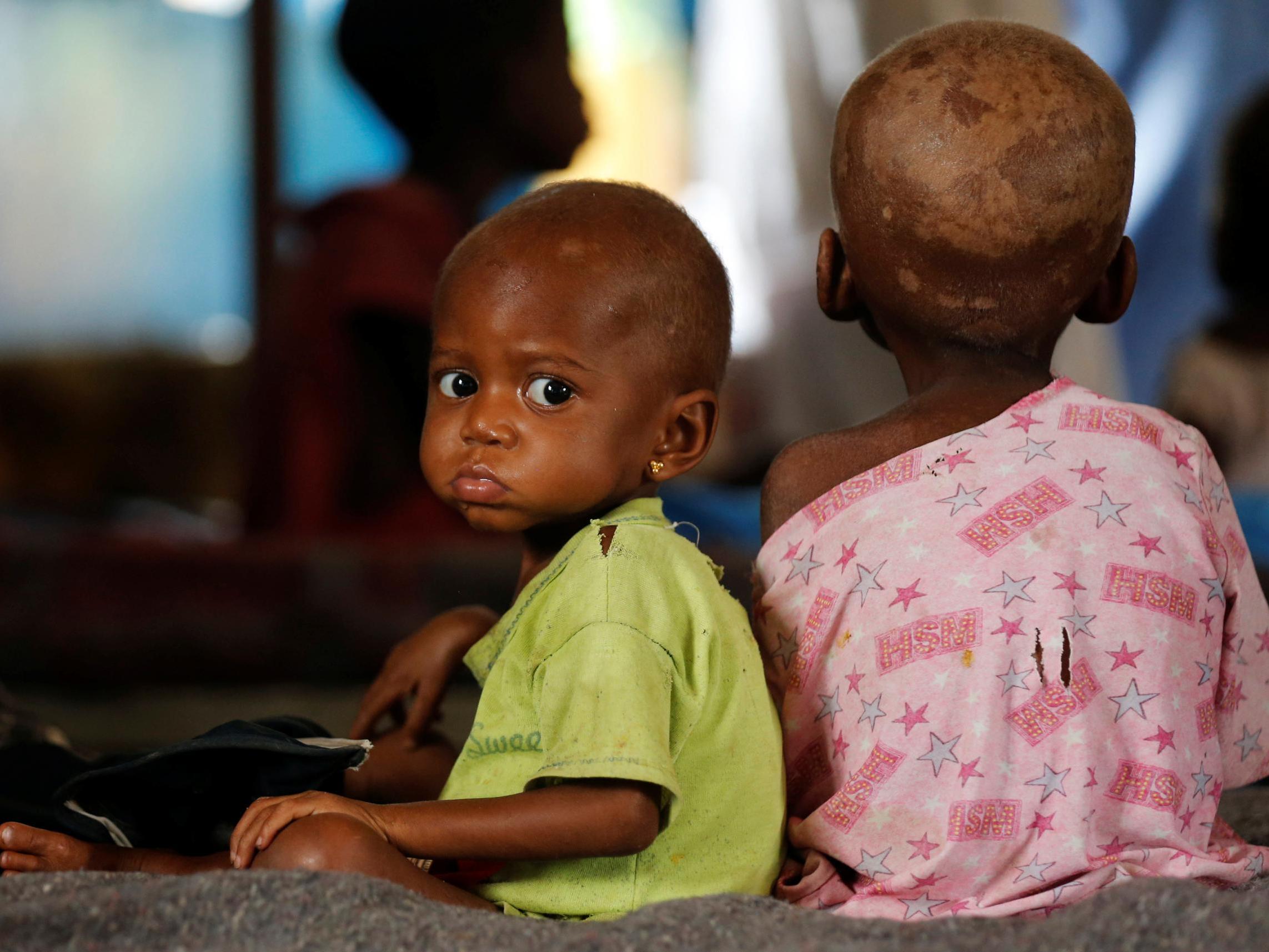Hunger causes almost half of all child deaths in Africa, report says
‘Globally, one child dies every three seconds due to hunger, equivalent to 10,000 children everyday,’ report reads.

Hunger is the cause of almost half of all child deaths in Africa, a new report by a Pan-African think-tank has found.
The African Child Policy Forum (ACPF), based in Addis Ababa, said that 60 million African children were stunted in 2018, or about one in three, and claimed that the cause was not the lack of resources, but of effective policies.
ACPF's report, titled For Lack of Will – Child Hunger in Africa said that 90 per cent of all children are malnourished or undernourished in Africa, and 60 per cent do not meet the minimum meal frequency threshold set by the World Health Organisation. The threshold is two meals a day for toddlers between six and eight months old and three for children until 23 months of age.
“Globally, a child dies every three seconds due to hunger, which is equivalent to 10,000 children every day,” the report reads. “About 60 per cent of people who go hungry are female.”
But ACPF emphasised that child hunger in Africa is not only a question of poverty and resources, but one of policies and redistribution.
“Child hunger is fundamentally a political problem,” ACPF president Assefa Bequele wrote in the report’s preface. “It is the offspring of the unholy alliance of political indifference, unaccountable and bad governance and economic mismanagement.”
“Africa has seen rapid growth in the last two decades,” Dr Shimelis Tsegay, ACPF Programme Quality Manager, told The Independent. “But even if countries sustain economic growth, if they don’t put in place good pro-poor, pro-child and pro-women policies, the issue is not going to go away.
“Economic growth alone does not necessarily reduce child hunger.”
The report cites the example of Nigeria and Mauritius. Nigeria’s GDP grew 4 per cent per year on average recently, but growth failed to reduce children stunting, while in Mauritius, pro-women policies were part of the mix that made it one of Africa’s most child-friendly countries.
“The moment countries adopt women-friendly policies, they will reduce the number of those who go hungry,” says Dr Tsegay. “Women need to be at the centre of the political agenda.”
He cites school feeding programmes and giving raising awareness about the issue as other useful policies to adopt, while Ms Bequele said the issue should be given the “utmost priority” in public policy and required a “radical” political and economic agenda.
Speaking at the eighth International Policy Conference on the African Child in late May, Ethiopian President Sahle-Work Zewde called the report findings “damning” and “challenging”. She said it “demonstrates that the problem [of child hunger] is huge.”
The countries where the situation was found to be most alarming are the Central African Republic, Chad and Madagascar, while Tunisia, Algeria and Morocco were the African countries least affected by child hunger.
The report makes clear that eradicating hunger should not only be a priority for governments because it is a humanitarian issue – but because it also contributes to inhibiting a country’s economic performance.
ACPF estimated that child hunger cost African countries between 1.9 and 16.5 per cent of their GDP.
Hungry, stunted children do less well in school, are less healthy and productive, and end up earning lower incomes than their peers, and this, in turn, hampers growth, according to the report. ACPF also claims that eradicating hunger could be considered an investment, estimating that for every dollar spent reducing stunting in early life, Nigeria could have a return rate of $85. The figure would be $80 in Sudan and $60 in Kenya.
While the report identifies the main culprits as the lack of equitable growth, conflict and a “broken” food system, climate change also plays a role.
“In 2017, climate shocks led to acute food insecurity in 23 countries, affecting over 39 million people, the majority of which were in Africa,” the report reads. “This included 8.5 million in Ethiopia, 5.1 million in Malawi, 4.1 million in Zimbabwe, and 3.4 million in Kenya.”
Another 10 million people needed food aid in Ethiopia following the 2015-16 El Niño phenomenon.
And global warming might make the issue considerably more difficult to tackle in the future, as water availability is predicted to decline in sub-Saharan Africa, driving down potential agricultural output. The report estimates that maize crops could yield 22 per cent less by 2050 due to adverse climate change effects, sorghum and millet could yield 17 per cent less, and groundnut 18 per cent less.
Join our commenting forum
Join thought-provoking conversations, follow other Independent readers and see their replies
0Comments